


Social selling is the art of using social networks to find, connect with, understand and nurture sales prospects. According to HubSpot, “The use of social media in sales allows salespeople to delight their prospects rather than interrupt their daily lives with cold calls and hard sells, eventually converting them into loyal customers.”
Even though there are an abundance of social media communities, LinkedIn remains one of the most powerful platforms to use for business. LinkedIn, in their own words, says “This sales technique enables better sales lead generation and sales prospecting process and eliminates the need for cold calling. Building and maintaining relationships is easier within the network that you and your customer trust.” They also share intriguing stats regarding the results of social selling:
So, how can you get the most out of your LinkedIn profile? Here are 5 ways to use LinkedIn for sales prospecting:
With a couple tweaks, you can turn your LinkedIn profile into a powerful sales asset. The most important thing is that your profile is a 100 percent complete. There is a high chance that your prospects will look you up if they are interested in what you are selling. When they do, your profile should give off a professional impression of you and your company.
LinkedIn automatically populates your headline with your current job title (your headline appears right under your name). To stand out, change this tagline to a value proposition that captures your audience’s attention. Get creative with the 120 characters you have. It should showcase what you bring to the table. Below you can see how I optimized my own headline.
Before:
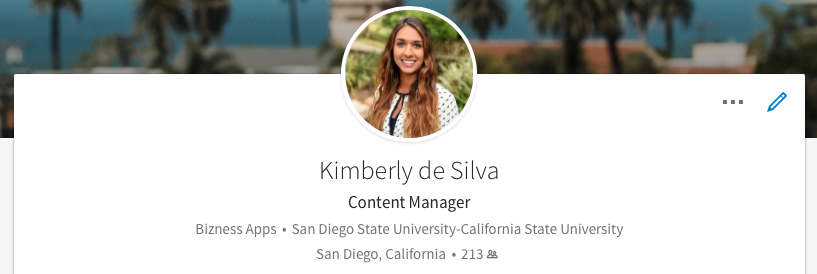
After:
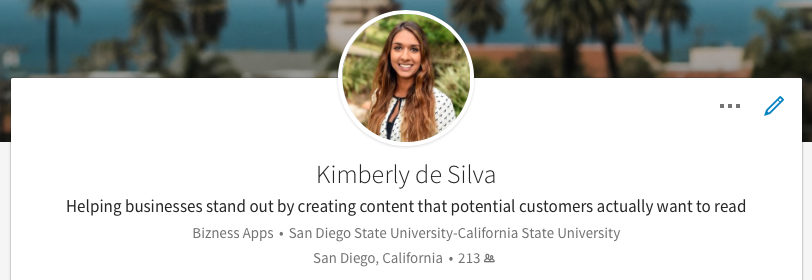
The new headline highlights “what’s in it for you”, a benefit for the viewer. Let’s be honest, people much rather connect with someone who can do something for them.
Don’t make your summary a mere list of tasks you perform at your current job -- that’s what job descriptions are for. Use this space to give people a window into who you are and why you do what you do. In order to optimize this part for sales, put the company you work for in a good light. See it as a short, but subtle, sales pitch for your company. Again, avoid being boring and generic, as this is your chance at a great (and authentic) first impression. Check out this example for inspiration:
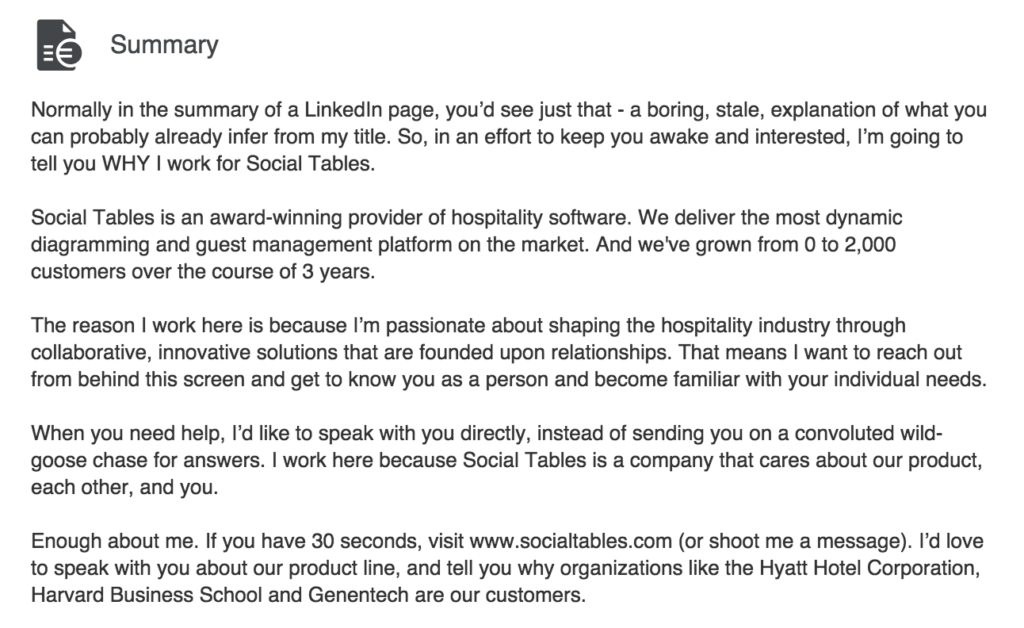
LinkedIn allows you to showcase projects that you have worked on. Use this feature! You can add videos, photos, text and links to highlight your skills. In terms of sales optimization, you should add media to showcase your product or service. For example, if you have a presentation you use for demos, add it to your profile. The profile below is of a Recruiter at Uber, who made sure to include several media links to the brand.
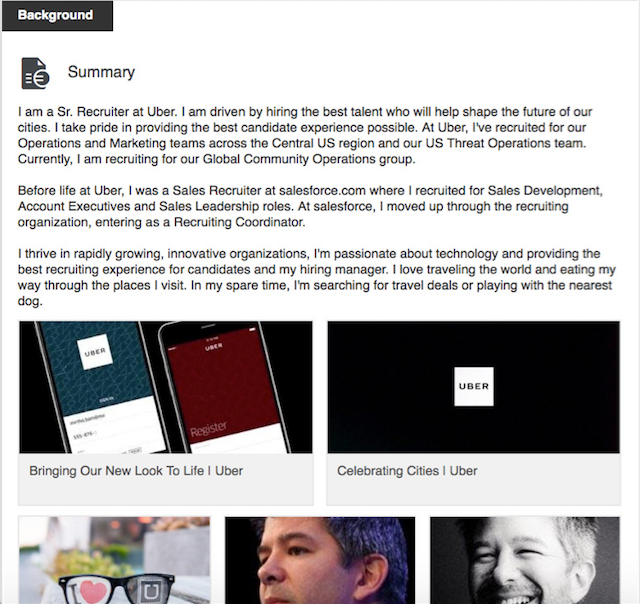
Completing your headline, your summary and your projects is something you can easily do yourself in an afternoon. Another great way to get more traction -- but requires a little more effort -- is getting recommendations from your existing happy customers. This will help viewers understand what kind of person you are, and what you offer. Note that quality is better than quantity, so reach out to people who will contribute a valuable recommendation.
Whenever you close a customer, you should invite them to join your network. There are various reasons for doing this. First, if you have your customers on LinkedIn, it will be a lot easier to ask someone for that quality recommendation we mentioned earlier. However, even more important is that you will be able to find the right person for a referral to another prospect. All you have to do is visit the prospect’s LinkedIn profile and see if any of your current customers are a shared connection. Finally, it is also a way to keep in touch and maintain a relationship with this customer.
If you find it awkward to directly send a LinkedIn request, ask them in person (or over the phone) with a simple “Can I send you a LinkedIn invitation?” or “Would you like to connect on LinkedIn?” Most people will be receptive to this type of request. If you do not have an in-person opportunity, make sure to always customize your LinkedIn request. Never send an invitation with the standard text, instead explain why you want to connect with them.
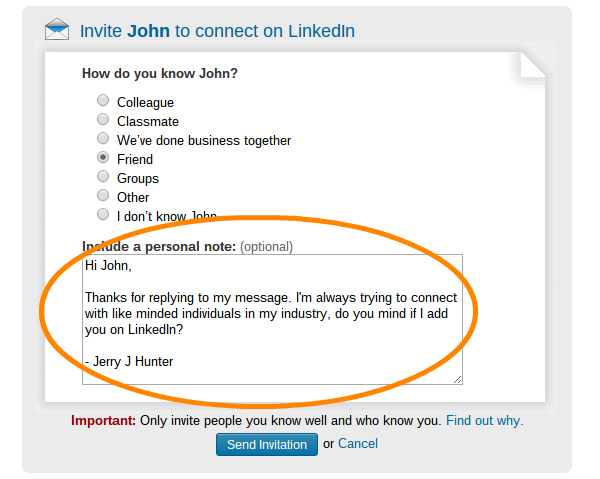
For example, as a Bizness Apps Reseller, you should connect with the small business owners you work with. This way you stay top of mind, and have an easy communication and networking channel set up between you and your customers. By building out this local network of small business owners on LinkedIn, you become the go-to person for mobile solutions in the area -- both online and offline.
LinkedIn groups are a great way to connect with your prospects long before you actually reach out to them. Conduct research on what type of groups your current customers, as well as your ideal prospective customers, are a part of. Make a spreadsheet listing all these groups, including the number of members it has, how engaged the group is and whether it is an open or closed group. Then choose two to three groups to become an active member of. Note the word active here; you can (and should) join as many groups as possible, but you can only be truly active in some of them. It will take some time and effort, but the idea is to become a thought leader in these groups, proving useful information and advice to its members. So when you do reach out to them, your name is familiar and trustworthy.
In addition, being part of the same group also gives you the perfect reason for making contact with a prospect. Group membership allows you to more easily expand your LinkedIn network.
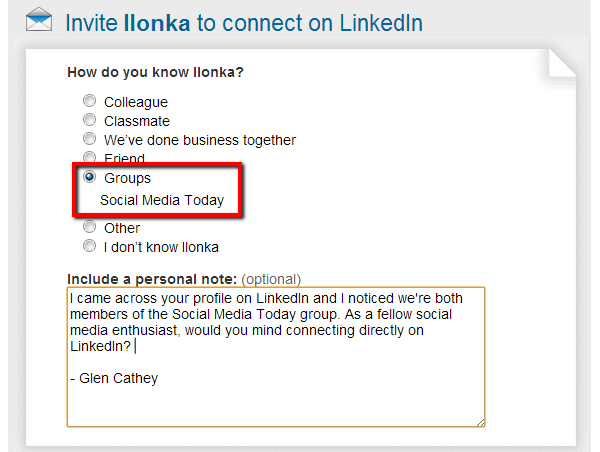
As most of us know, collecting emails of prospective customers is easier said than done. This is where LinkedIn comes in handy. Finding someone’s LinkedIn profile is a lot easier than finding someone’s email address. As a result, all you have to do is add someone to your network to get their email address.
How, you ask? One of LinkedIn’s most useful -- but least known -- features is the ability to export a spreadsheet of all your connections. This file contains your contacts’ full name, email address, current employer and position!
Here’s how you do it:
1. Click the My Network icon at the top of your LinkedIn homepage.
2. Click Your connections on the left rail.
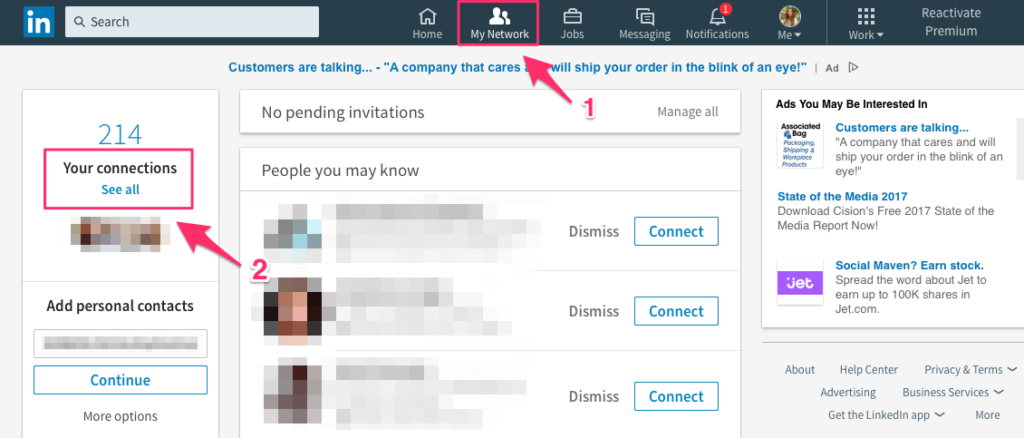
3. Click Manage synced and imported contacts near the top right of the page.
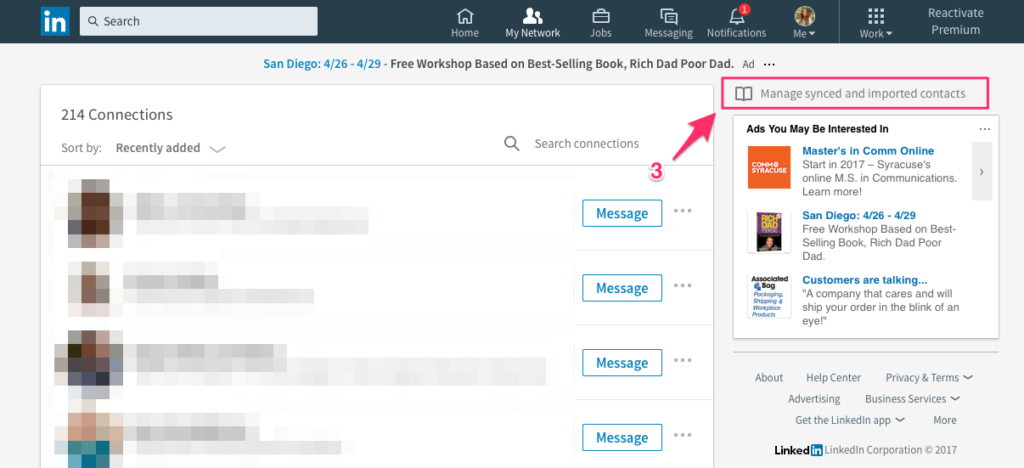
4. Under Advanced actions on the right rail, click Export contact.
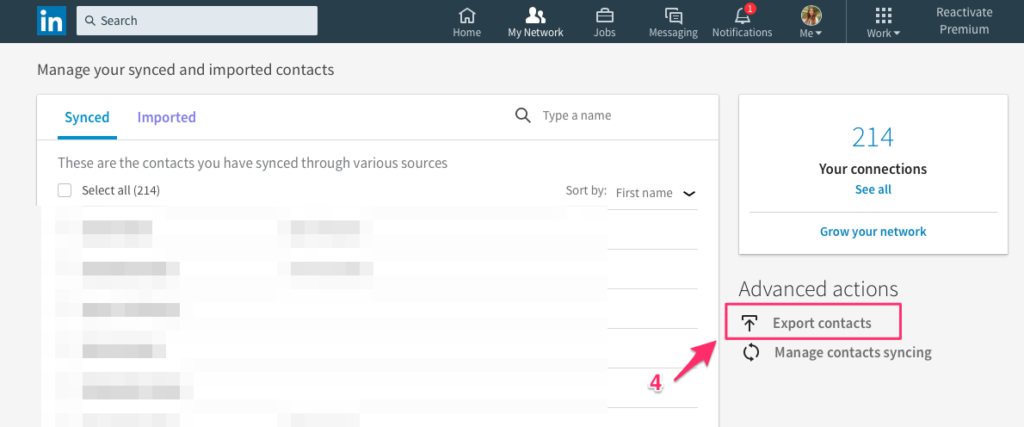
5. Click Request Archive. You will be asked for your password to complete the action.
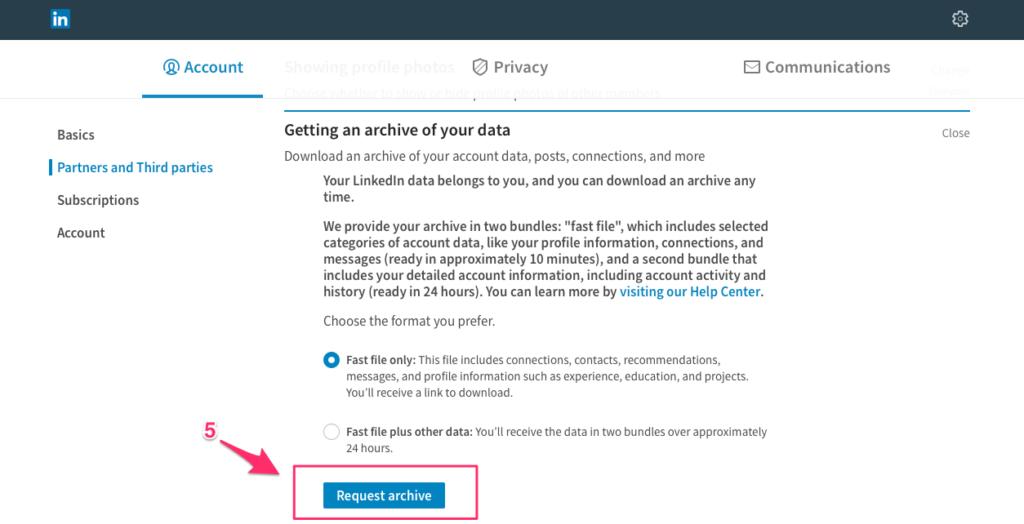
6. You will receive an email to your Primary Email address which will include a link where you can download your list of connections.
7. Click the link in the email, bringing you to the archive. Click Download.

8. You will have an entire folder of LinkedIn data, but the most important file is the “Connections.csv." And TADA, everyone’s contact information!
There you have it, the perfect tool for prospecting, finding referrals and keeping your customer data up to date.
If you want to take it a step further, you can get a premium LinkedIn account with access to the LinkedIn Sales Navigator. This tool has many useful features to step up your sales game:
Overall, this tool helps you recognize opportunities, as well as capture the right people at the right time. The Sales Navigator starts at $64.99/month for an annual account, but LinkedIn does offer a 30-day free trial to get you started.
Social selling is the next big thing. If you aren’t using LinkedIn yet for sales prospecting, you are missing out on a huge opportunity. Many people forget that your existing network is a great place to grow your business.
Sign in to read this article & enjoy the following:

Delhi,
Full Time
USD 1500000 — USD 5000000 yearly
LinkedIn LinkedIn for sales LinkedIn for sales prospecting social selling social selling on social networks sales prospects social selling leaders LinkedIn sales tactics LinkedIn lead generation optimize your LinkedIn profile LinkedIn network participate in LinkedIn groups LinkedIn dedicated sales tool BEAM LinkedIn BEAM LinkedIn lead generation BEAM LinkedIn Malaysia BEAM LinkedIn Singapore

